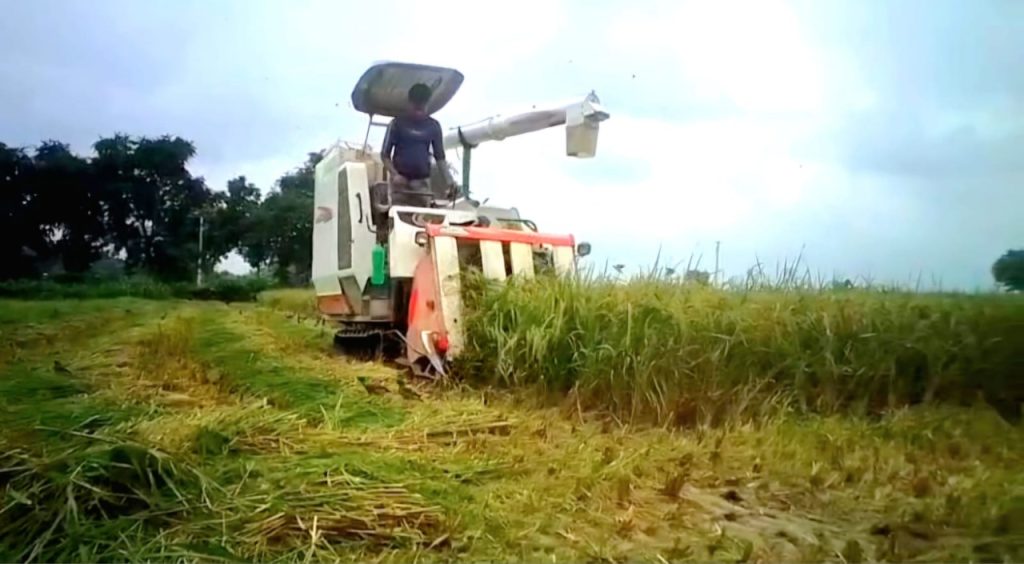Farmers’ Hub Agri-Mechanization Services – Driving Efficiency, Productivity, and Climate-Smart Farming

The Farmers’ Hub (FH) model under the IWET Project serves as a business-driven, farmer-centered platform providing modern agricultural services, inputs, and market linkages. A key component of this model is agri-mechanization, which enables farmers in the Barind Tract of Bangladesh to adopt efficient, cost-effective, and climate-smart practices.
🌟 Mechanization Services Through Farmers’ Hubs
Farmers’ Hubs typically operate its mechanization support under a service rental model.
1. Small Machines – Owned and Rented Out by FHs
FHs usually own smaller machines and rent them directly to farmers. These machines are either operated by the farmers themselves or with support from the FH owner, making services affordable and easily accessible. Examples include:
- Power tillers – for land preparation
- Seedling transplanters – ensuring uniform spacing, saving seedlings and labor time
- Multipurpose weeders – for weeding in both dry and wet land
- Sprayers – for applying agro-chemicals
- Foot pumps – manual sprayers, commonly used in orchards
- Rice threshers – post-harvest machinery
- Corn shellers – for separating corn, post-harvest
- Mini tillers – for ploughing and weeding
- Small-scale irrigation and water-lifting equipment
2. Large Machines – Custom Services Through FHs
For larger, high-investment machinery, FHs primarily facilitate custom hiring services. While a few FHs own such machines, many act as service providers by forming groups and linking farmers to equipment access. In these cases, FHs coordinate the service and earn a commission for facilitation. Examples include:
- Combined harvesters – reducing harvesting time by up to 70%, minimizing post-harvest losses, and lowering labor dependency and wage costs
- 4-wheel tractors – for ploughing soil and transporting goods
- Rice transplanters – for efficient seedling placement, saving 25–30% seedlings and up to 40% labor time, while improving water efficiency and crop management

⚠️ Challenges Addressed by the Farmers’ Hub Model
- High investment costs mitigated by service-based access through Hubs.
- Limited maintenance and spare parts addressed through trained local mechanics.
- Operator shortages resolved by capacity building and operator training programs.
- Small, fragmented landholdings managed through shared service provision models.
- Farmer hesitancy overcome via demonstrations, training, and advisory services.
🔑 Role of Farmers’ Hubs in Mechanization
Farmers’ Hubs act as one-stop service centers, integrating mechanization with access to inputs, advisory support, and markets. They:
- Act as one-stop service centers offering mechanization, inputs, and advisory services.
- Operate under a commission-based system, providing revenue opportunities for local entrepreneurs.
- Ensure transparent service delivery and quality control.
- Facilitate market linkages and strengthen value chains for smallholder farmers.
- Promote climate-smart and sustainable agriculture practices.
🌿 Impact
- Enhanced efficiency and productivity in rice cultivation.
- Reduced labor costs and post-harvest losses.
- Improved farmer incomes and access to modern technologies.
- Empowered local youth and entrepreneurs through service provision.
- Strengthened resilience and sustainability of farming systems in the Barind Tract.
By integrating agri-mechanization with the Farmers’ Hub model, the IWET Project is ensuring that farmers grow more, save more, and earn more, while creating sustainable business opportunities and fostering climate-resilient agriculture in the region.
Share










